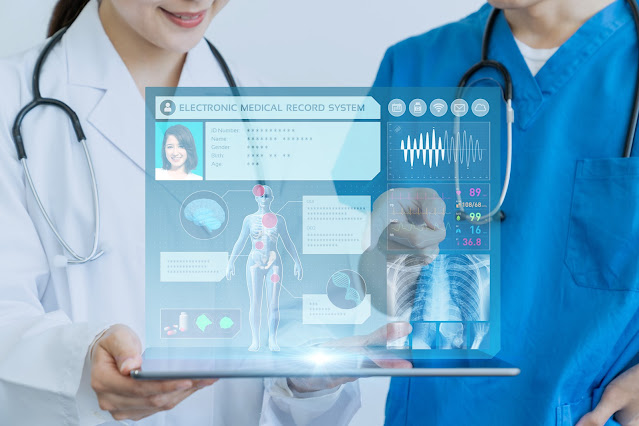Home Health Monitoring and the Self-Testing Market
Home health monitoring is a crucial aspect of the self-testing market, enabling individuals to take an active role in managing their health and well-being from the comfort of their homes. This approach to healthcare empowers users to monitor various health parameters and detect potential issues early, promoting preventive measures and timely interventions.
The advancement of technology has
revolutionized home health monitoring, making it more accessible and
user-friendly than ever before. A wide range of self-testing kits and devices
are now available, catering to diverse health needs, such as blood glucose
monitoring for diabetics, blood pressure monitoring for hypertension,
cholesterol testing, and pregnancy testing, among others.
One of the key benefits of home
health monitoring is convenience. By eliminating the need for frequent visits
to healthcare facilities for routine testing, individuals can save time and
effort while still obtaining accurate and timely health data. This convenience
is especially beneficial for those with chronic conditions that require regular
monitoring.
Moreover, home health monitoring
encourages proactive health management. Users can track their health parameters
regularly, allowing them to detect any deviations from their baseline and seek
medical advice promptly. This early detection can lead to better disease
management, improved treatment outcomes, and a reduction in healthcare costs
associated with complications.
Home health monitoring also
fosters a sense of empowerment and ownership of one's health. By taking an
active role in monitoring and interpreting their test results, individuals
become more engaged in their healthcare journey. This heightened awareness can
lead to healthier lifestyle choices, such as dietary improvements, increased
physical activity, and better medication adherence.
Furthermore, home health
monitoring contributes to a more comprehensive approach to healthcare,
particularly in the context of aging populations and remote patient monitoring.
Telehealth and remote monitoring technologies enable healthcare providers to
remotely access and review patient data, enabling timely interventions and
reducing the need for hospital admissions.
The self-testing
market has also seen significant advancements in data integration and
digital health. Many self-testing devices are now equipped with Bluetooth or
Wi-Fi connectivity, allowing seamless data transmission to smartphones or
cloud-based platforms. This integration enables users to store, access, and
share their health data securely with healthcare providers, facilitating
informed decision-making and personalized care plans.
However, challenges remain in
ensuring the accuracy and reliability of self-testing devices. Market players
must invest in research and development to enhance the precision of these
devices and provide adequate user training for proper testing techniques.
Additionally, healthcare providers must actively engage with patients using
self-testing devices to interpret results correctly and ensure appropriate
follow-up actions.
Home health monitoring plays a
vital role in the self-testing
market, empowering individuals to take charge of their health and
improve their overall well-being. As technology continues to advance,
self-testing kits and devices will become even more sophisticated, fostering a
proactive and data-driven approach to healthcare that benefits individuals,
healthcare providers, and society as a whole. By leveraging the potential of
home health monitoring, the self-testing market can contribute significantly to
preventive healthcare and improved patient outcomes.




Comments
Post a Comment